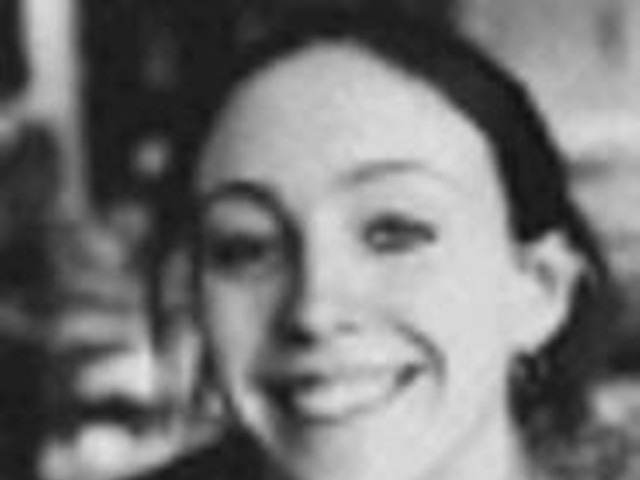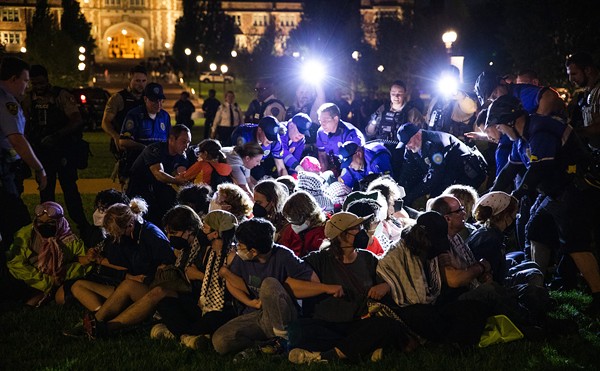Today, Laurie Chirco wants you to know she has "no faith in the system."
In an interview broadcast last week on the Steve and DC show on KHITS (96.3 FM) -- a program aired in 12 markets -- Chirco sought to explain a bizarre series of events that had her seeing Wolff near the murder scene in 1997, claiming police threatened her and then refusing a subpoena for tapes she said she made of police interrogations. Chirco called the radio station after an account of the murder case was published by the Riverfront Times ["See No Evil," RFT, Jan. 10].
In the lengthy appearance, during which she answered questions from the family of murder victim Denise Wolff, Chirco said she had paid a heavy price for coming forward as a witness. She said she had been followed and her phone calls monitored. She said she lives in constant fear. As for the murder, however, Chirco shed no new light and, if anything, may have bolstered defense arguments that she never was a credible witness.
She certainly never was an eager witness. In the days after the July 17, 1997, murder, police officers going door to door went to Chirco's apartment building and asked her whether she'd seen anything. She said she had been out walking her dog that morning but that she had seen nothing. She reluctantly agreed to go to the police station for more questioning, and, after 11 hours -- including some time spent handcuffed to a table -- she told detectives she had seen a man standing on the corner around the time of the murder, and she identified that man as Larry Wolff.
Alleging verbal and physical abuse by police, Chirco refused to cooperate further until nearly a year later, when she called and met with detectives, describing in detail how she saw Larry Wolff get into a van parked outside Denise's South St. Louis home, then witnessed gunshots coming from the van. Her testimony led to Wolff's arrest for murder in the fall of 1998. Then, in May 2000, Chirco refused to comply with subpoenas ordering her to turn over a tape she said she had made of her initial interrogation by police. Because of her refusal, a judge agreed to strike her as a witness in the case. Without Chirco's testimony, the circuit attorney's office decided to dismiss all charges against Wolff.
After the case fell apart, Chirco was content to slip back into obscurity. That changed with the RFT story. During her Jan. 16 radio appearance, the hosts were sympathetic to Chirco. But one of them did ask why she neglected to call police immediately after witnessing the crime.
"It was a combination of being scared and not believing I would ever see anything like that, not even in the area I lived in," she said.
She told listeners she felt she'd been stalked by Larry Wolff and followed by members of Denise Wolff's family. She claimed a man in a yellow car with long hair tried to run her off the highway. She described being threatened by three men, including Larry Wolff, outside her apartment building, saying one of them told her he would "kill my kid in front of me" if she talked. She claimed someone put a note under her door reading "I know where you are." She said police officers contributed to her torment -- one detective, she says, threatened to tell the prime suspect where she lived, and another called to tell her the suspect was "looking for me."
She told listeners she continues to live in fear for her life, that she has given up custody of her daughter out of concern for the girl's safety and that, even now, she believes her phone lines are tapped.
But, as compelling as her story seemed, Chirco offered few straight answers to members of Denise Wolff's family, who prodded her with questions, essentially asking her: If you saw what you say you saw, how could you let the killer go free? Chirco never directly answered.
Said Sue Doetzel, Denise's sister: "I want to ask Laurie, after 18 months of hell for everyone, why did you just uncooperate with the police? Why? Why did you go through this for 19 months and then, in the end, it just fell apart?"
At first, Chirco skirted the issue of the tape she refused to turn over -- which ended the criminal case -- instead talking about demands by the defense for personal information: "What they had subpoenaed and ordered was that I tell ways my daughter, myself, my friends and family could be found. I don't know anyone that would want to give that information."
Doetzel was undeterred: If Chirco had taped the exchange with the police, as she said she had, why not produce it?
"I don't think my daughter needs to hear that," Chirco said. "I still have it."
If you had turned over the tape, Doetzel pressed on, the case would have gone forward.
"I refuse to go to court when they want my address, my sister's name, my friends' names," Chirco said. "They told me they had a witness-protection program, but I found out almost before the case was dropped that that's only in federal cases."
Said Doetzel: "I was told the only reason the case was dropped was because you would not produce the tape."
"The interrogation, what happened there -- that, to me, has nothing to do with the case," Chirco replied. Then she brought up the lead prosecutor, Ed Postawko, who took a leave of absence and left the country weeks before the case was scheduled to be tried. Chirco said she had heard he was "either threatened or paid off." She continued: "The last judge in the case, I found out he was an ex-city police officer, the one demanding I turn over my address. I know they could not give me protection."
Denise's daughter Angie Erickson phoned in with another pointed question for Chirco: Why go on a radio show if you are so upset and afraid? "If you are that terrified, it seems like you just keep running back for more attention," Erickson said. "If you are that scared this man is going to come after you, why are you putting your name all over?"
"I didn't put out this article," said Chirco. "I wasn't even interviewed for this. They never tried to reach me." (The Riverfront Times tried repeatedly to reach Chirco by phone and through a letter to one of her last known addresses, though she has said she moved repeatedly after the murder in an attempt to conceal her location. The RFT also contacted her attorney, who would not confirm that he knew her. Chirco's brother-in-law agreed to relay a message from the RFT to her, but Chirco says she never received it.)
Chirco explained her decision to go on the radio by saying she had little to lose: "What else can be done to me? I have lost everything. Am I supposed to let you guys keep printing articles where my husband works? What if someone goes to my husband's work? Should I get a divorce, because I am now considering it." Chirco concluded by saying she has "no faith in the system. It's scary. This is just a small part of what me and my family has been through."
If she had wanted the last word, Chirco didn't get it. The next day, Rick Sindel, the attorney who defended Larry Wolff in the criminal case, responded on the Steve and DC show, saying that problems with Chirco's credibility were what ended the murder case.
He described the flaws in her story -- how she described following the man she saw that morning, even though she thought he was the South Side Rapist; how she said she was eyeballed by the killer and the driver of the van but that both drove past her in plain sight after the murder and left her unharmed; how the direction she said the van traveled in conflicted with the testimony of at least 10 other witnesses, including three or four police officers.
"So, all of her facts that we could verify didn't check out," Sindel said. "Her story didn't seem to make sense. There was no physical evidence in any way that tied Larry to the crime or the incident. Laurie Chirco's husband actually owned the same kind of weapon that was used in the assault. Laurie Chirco's husband actually owned a van that fit the description of the van that was given by independent witnesses."
Sindel went on: "She said in her diary that the police told her who to pick out. They said, "This is the man we want. You pick him out, you can go.' Now, if they did do that, the case isn't worth a damn anyhow," Sindel said. "If they didn't do that, then she's lying."
One piece of evidence might show who's lying and who's not. It is the tape recording that Laurie Chirco claims to have, the one she refused to turn over, the one that caused the case against Larry Wolff to crumble.
In a Jan. 18 telephone interview with the RFT, Chirco said she still has the tape. She says she kept a microcassette recorder in her purse -- a big handbag she bought at Lerner -- and that when the two police officers who questioned her left the room, she switched it on. She says she worried throughout the interrogation that the tape would come to an end and the detectives would hear the click of the recorder. They didn't. She says she recorded the whole thing. All 11 hours? "Yes," Chirco replies. How could 11 hours fit on a tiny microcassette? Chirco says she carried other tapes in her purse. She says that somehow she got it all.
Chirco says she realizes that some people don't believe any tape exists. She says she wants to play it. After the RFT story on the Wolff murder appeared, Chirco says, she wanted to air the tape on radio or TV to prove her truthfulness and to force the two detectives to acknowledge the impropriety of their actions and suffer the consequences.
But her husband discouraged her, Chirco says, and she will do as he wishes: "He wants me to put this all behind me."





